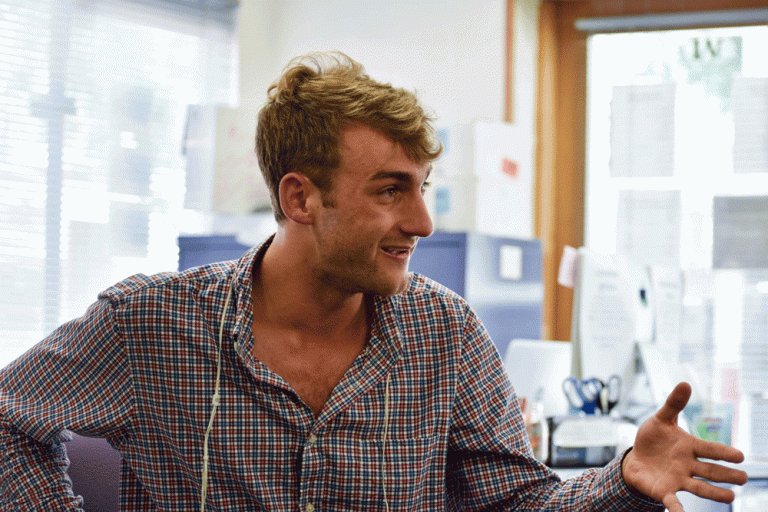
Jack Alegre
Staff Writer
Students held a town hall on May 19 to reflect on the 2017 Associated Students elections. Participants discussed the election experience and engaged in conversation about what they felt could stand to change regarding elections.
Discussion topics included revisions to the rules for how campaigns start, protocol for how independent candidates should proceed with campaigns of their own, and whether party boards should be phased out. A point of contention was over how the elections process could best serve the needs of transgender students. Students also addressed the supposed “dirty campaigning” during election season, which allegedly included personal attacks against candidates from both parties and unwarranted aggression.
The students present at the meeting sought to address the issues surrounding the campaigning process. Due to rules for when campaigning could actually begin this year — such as limits on when an individual candidate could actually announce their bid for office — candidates present said they found it difficult to adequately get their own campaign messages across.
Participants also raised concerns over the boards used by candidates for their campaigns. Many candidates said setting up boards is a strenuous process, calling the system a “first-come, first-served” mentality. Therefore, many candidates wanted to either redefine how people select the spaces where they are allowed to set up their boards (the current system is determined by order of sign-up) or even eliminate boards entirely.
Outgoing A.S. senator Charles Neumann proposed that an alternative to the physical boards on campus could be an electronic system of advertisement. However, he said it would be better to host such ads on Gauchospace instead of GOLD, as many people found the latter relatively unforgiving in providing adequate election information. The idea of livestreaming the campaign debates was also put forward, in order to increase accessibility.
Recently-elected Student Advocate General Jack Tannenbaum also spoke at length about the limits placed on independent candidates such as himself. According to Tannenbaum and the A.S. Elections Code, parties are allowed a $6,000 budget for their campaign, while independent candidates are only allowed $600.
“Independent candidates are at an inherent disadvantage against partisan groups,” said Tannenbaum, a third year economics major.
“You cannot recruit a team until declaration of candidacy, whereas parties are able to recruit a team all through recruitment,” he said. He noted that independent candidates seeking positions that are also open to the partisans are “at a four week disadvantage in recruitment.”
“Students who might be interested in being politically active are going to be, for lack of a better word, poached by the other parties,” said Tannenbaum.
Transgender issues were also on the agenda. Isla Vista Party member Naia Al-Anbar posited an amendment to Elections Code so that candidates would no longer have to run under their legal name. This would spare them the experience of being “outed” as trans or otherwise, she said. Additionally, al-Anbar also suggested that the Elections Board rewrite some terms to be more gender-neutral, citing discrepancies in word choice in certain election documents.
To conclude the town hall, attendees of the meeting turned their attention to the so-called “dirty campaigning” of the election. Little mention was made about any specific incidents, although the point was brought up that much of the bad blood could not necessarily be traced back directly to members from the respective parties.
A party is not forced to register persons volunteering on its behalf, so individual party members launching attacks against opponents receive a shield of plausible deniability. To preclude similar controversy in the future, students proposed an amendment to the election process which would have parties register volunteers for their campaigns.
Ultimately, the town hall focused on streamlining the campaign process. Those attending said they wanted to make it easier for candidates to begin their own bids by moving up the time for active campaigning to begin. They also wanted to make sure elections conclude no later than the third week of spring quarter, so regular students feel less overwhelmed.
Carlos Castillo, a member of Elections Board, said town halls like these are “very great.”
“They are an opportunity to connect with students,” he said. “We want to strengthen our relationship with the students.”










